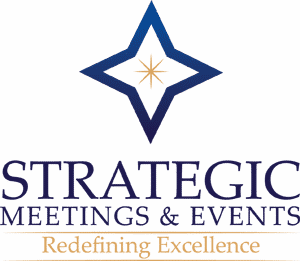Marriott Commissions Decision Roils Planners
By Michael Bassett
Marriott International’s New rules on how commissions are paid to independent planners and other group intermediaries have generated a heated discussion within the meetings community, particularly among the independents most likely to be affected by the policy.
Beginning January 1, contracts for meetings convening after June 1 of this year include a clause providing that commissions will be paid only to U.S. and Canadian intermediaries that are accredited by the International Airlines Travel Agent Network, the International Air Transport Association, or the Airline Reporting Corp. Marriott is arguing that the change is needed because it wants to ensure that it is providing better service — including quicker commission payments — and only making payments to third parties that are legitimate businesses.
The new certification requirements leave meetings industry lawyer James M. Goldberg, principal in the Washington, D.C., law firm of Goldberg & Associates, with some questions. In particular, he wonders what is going to happen the first time a planner without the necessary accreditation goes to Marriott with a contract calling for a commission payment. “I can’t see a hotel salesperson turning down business they’ve accepted in the past because of the lack of an IATA number,” Goldberg says. “It seems to me that kind of attitude is going to last only until the next economic slowdown.”
Hurdles for Independents

Some independent planners will face a number of hurdles to get IATA certification, and if the Meetings Community listserv is any indication, there’s a difference of opinion about the effect the requirement will have on their businesses. Goldberg also points out that planners will have to overcome some bureaucratic hurdles in order to comply with the Marriott plan. For example, he says, the commission payment process will require that planners register a Doing Business As statement in order to receive their checks. “A lot of planners are just home-based and don’t have DBAs,” Goldberg says. There is also the question of errors and omissions insurance. IATAN has waved the insurance requirement, which is costly, for planners who perform site selection services only and do not sign contracts.
“The waiver helps our company,” says Jim Louis, chief information officer of Best Meetings Inc., Bloomington, Minn., and co-founder of MeCo. “But one of the big issues is … that meeting planners have to join an association with a focus on airline travel and travel agencies. What does this say about the status of meeting planners in the business world?”
Other planners have chaffed at the costs of accreditation. The application fee for an IATAN number is $165, with a renewal fee of $65. Steve Collins, president of Breckenridge, Colo.-based Resort Meeting Source LLC, has taken the lead in urging fellow planners to protest Marriott’s decision. Collins doesn’t believe that Marriott, or any supplier, should dictate how independents run their businesses, and has been contacting (and has called on planners to contact) Marriott properties to let them know that following the Marriott policy could affect their business.
The response so far has been tepid, says Collins. “I’ve only received a response from one hotel. The impression was that they would work around this requirement to get the business.”
Looking at the Upside
Goldberg sees one distinct positive in the Marriott proposal — quicker payment of commissions. “If Marriott does what it says it’s going to do, you’ll see more prompt payments,” he says. “The typical contract now says payment will come 30 days after payment of the master account. Now Marriott says payment will occur 45 days after the event departure. That’s different and necessarily more prompt. I’ve had planners who’ve had to wait months for a commission check using the current system.” Christy Lamagna, president of Strategic Meetings and Events in Bernardsville, N.J., says that her knee-jerk reaction to Marriott’s plan was “this is just another example of corporate America putting it to the little guy, to see how much more they can whittle away at our profit margins.”
Upon further reflection, Lamagna sees an upside. “One of my personal goals in the industry has always been to be seen as a true professional, not as some kind of party planner,” she says. “Having an IATA number means that you are an established member of that industry — it helps to elevate the profession in the eyes of hotels as well as in the eyes of your clients. I think that after tempers cool down, and everyone figures out how to work around this thing so that the industry as a whole doesn’t suffer, people will wonder how they can’t be in favor of something that will make us more reputable and more established.”
Tags: Marriott Commissions Decision Roils Planners, Event Planning, Event Planners, Strategic Planners, Strategic Events, Corporate Events, Corporate Meetings, Meeting News




